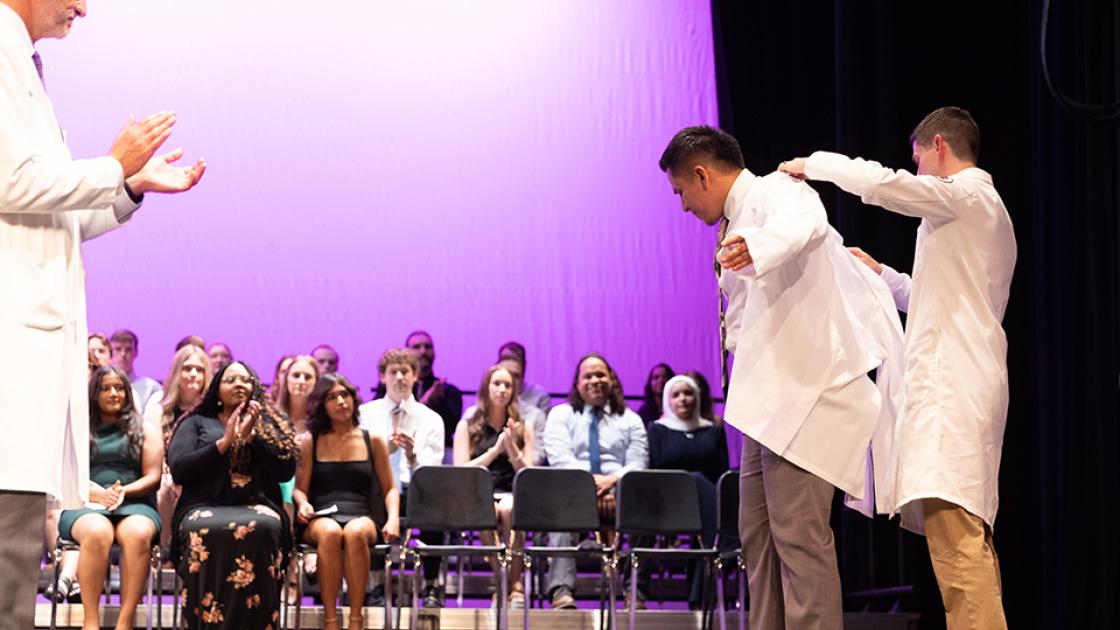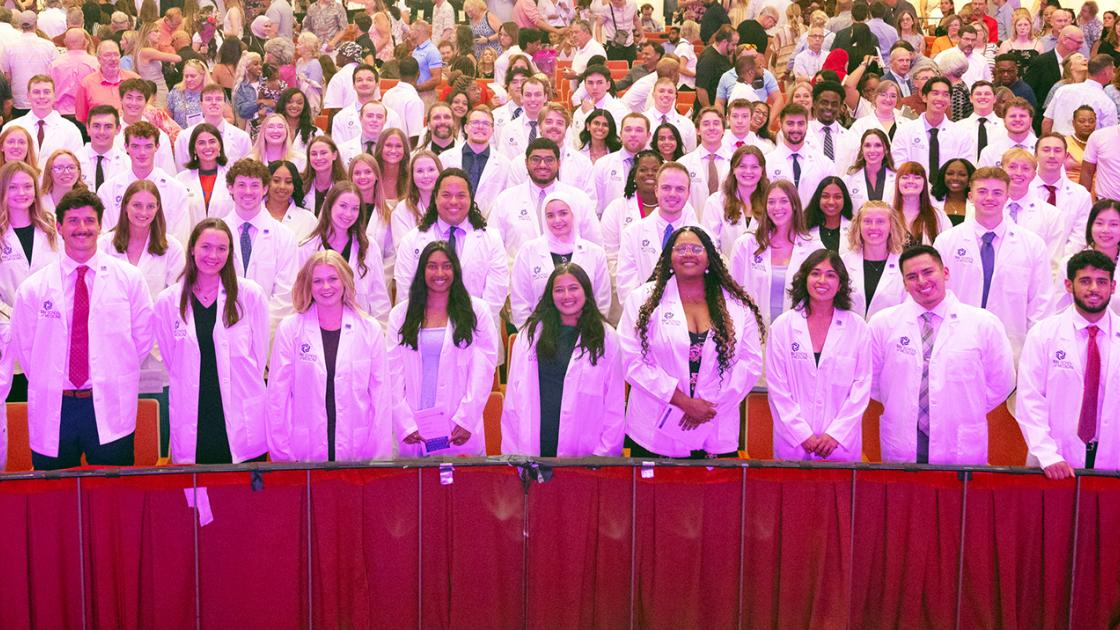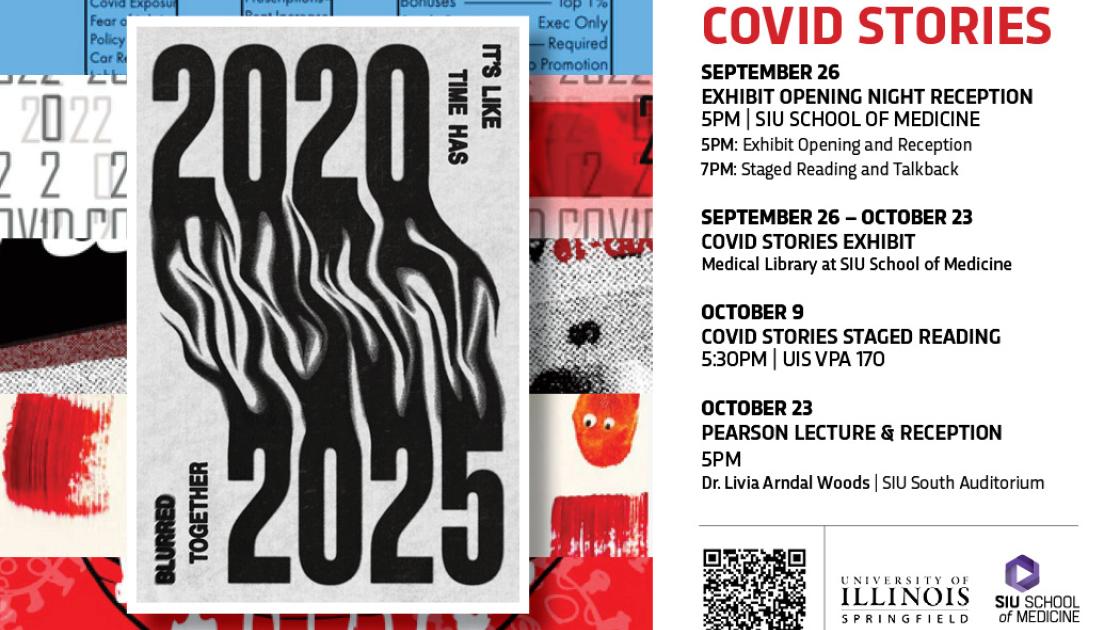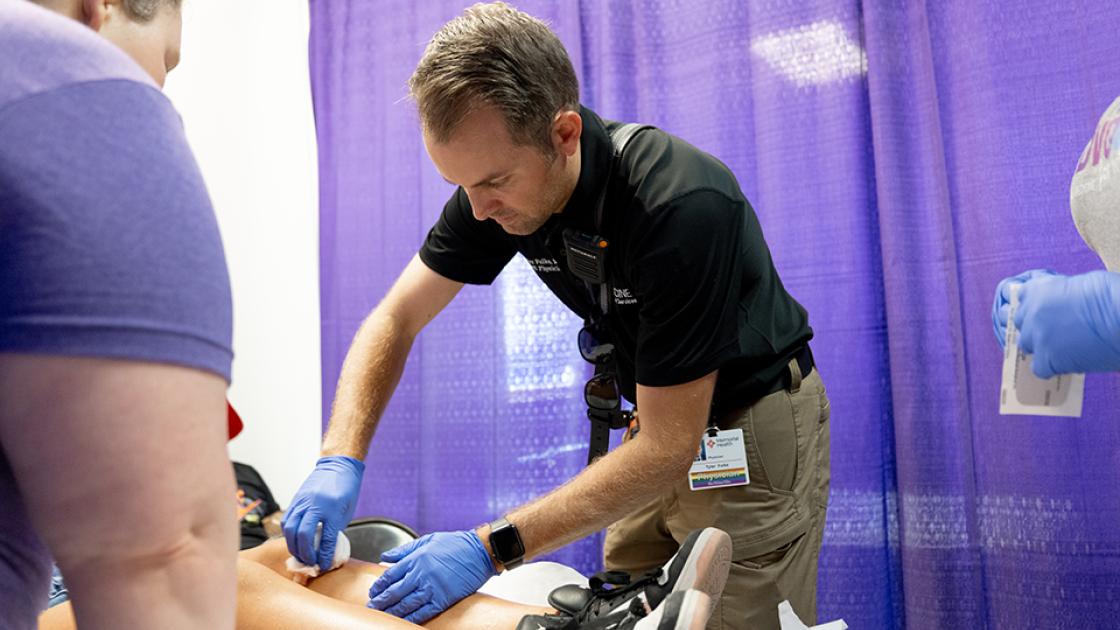
From disaster recovery to state fair emergencies, Dr. Tyler Fulks answers the call
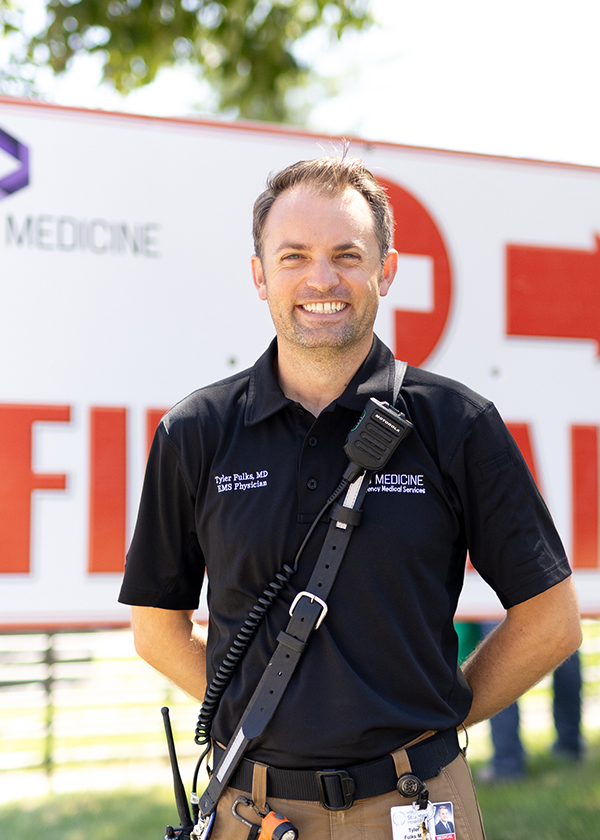 As families flocked to the Illinois State Fair this summer for deep-fried delicacies and dizzying rides, an essential team worked quietly behind the scenes to ensure their safety. At the helm of this effort was Dr. Tyler Fulks, an emergency medicine physician with SIU School of Medicine who coordinated emergency medical services at the fair’s first-aid station.
As families flocked to the Illinois State Fair this summer for deep-fried delicacies and dizzying rides, an essential team worked quietly behind the scenes to ensure their safety. At the helm of this effort was Dr. Tyler Fulks, an emergency medicine physician with SIU School of Medicine who coordinated emergency medical services at the fair’s first-aid station.
What was once a simple stop for Band-Aids and water has, under Fulks’ direction, become a robust point of care capable of handling a wide range of non-life-threatening issues—ensuring visitors can return to enjoying the fair instead of heading to the ER. “We’re not trying to create a hospital,” Fulks said, “but within the guidelines of basic first aid care, we want to provide the highest level of service we can to fairgoers, volunteers and staff.”
This approach not only eased the pressure on local EMS services but also created a more comprehensive and compassionate care environment. “If it’s something minor, something simple, that we can easily evaluate and treat right here, we can get them back to the reason they came here in the first place,” he added. Whether it’s heat-related illness, blisters or allergic reactions, Fulks’ team worked to stabilize and support without disrupting the fair experience.
Fulks’ ability to stay calm, decisive and empathetic in unpredictable situations is no accident—it’s been molded by his career in central Illinois as well as recent work with Indiana Task Force One, a FEMA-aligned urban search and rescue team. Just days before the fair started, he returned from a deployment in Kerrville, Texas, following catastrophic flooding.
As a medical team manager, Fulks’s role carried two responsibilities: keeping his 80-member team healthy so they could perform at full strength, and delivering medical care to victims until they could reach definitive treatment. “You’re interacting with people on one of the worst days of their lives,” Fulks said.
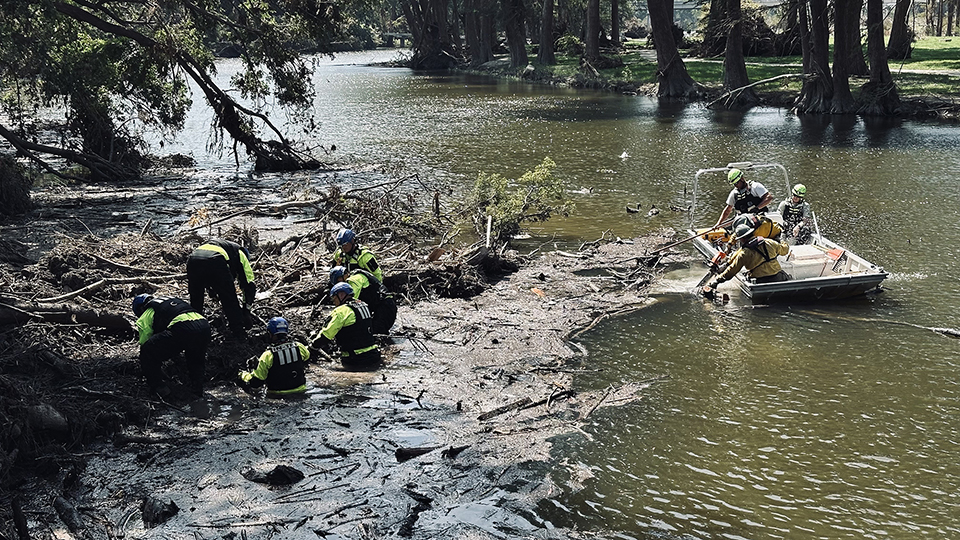
The aftermath, with debris lodged high in trees, indicated “just how destructive, how powerful water and flood emergencies can really be,” Fulks recalled. “From a sleepy town in Hill Country, Texas, to one of the worst disasters that anyone had ever seen in a matter of a few hours—it’s really hard to imagine what that must have been like to be someone in that community, experiencing that in real time.”
The long days of pre-dawn check-ins, 12-hour field operations, and late-night paperwork were taxing, but what struck Fulks most were the people. “I had a chance to talk to a few of the flood victims and to hear their stories and connect with them… listening to someone discuss their whole life, their belongings being washed away—it’s just hard to hear. But in general, everyone that we came across in the community was incredibly appreciative, incredibly kind, very warm and very welcoming.”
That kind of connection, forged in the chaos of disaster zones, informs how Fulks approaches emergency medicine back home. Whether stabilizing a patient in the ER, leading care at the Illinois State Fair’s first-aid station, or deploying into the aftermath of a flood, his mission remains the same: to provide efficient, effective and empathetic care across every setting.
Despite the intensity of both roles, Fulks acknowledges the unique energy of the fair. “I wouldn’t say it’s a vacation, but it’s definitely one of the things I look forward to most every year,” he admitted. “The world of pre-hospital medicine, that’s my true passion. And here in Springfield, this is the largest mass gathering we have each year. I love it.”
His approach exemplifies what emergency care should be: prepared, professional and always human-centered. Whether responding to devastation or dizziness, Dr. Fulks brings the same level of care, humility and dedication—and Illinois is better for it.

